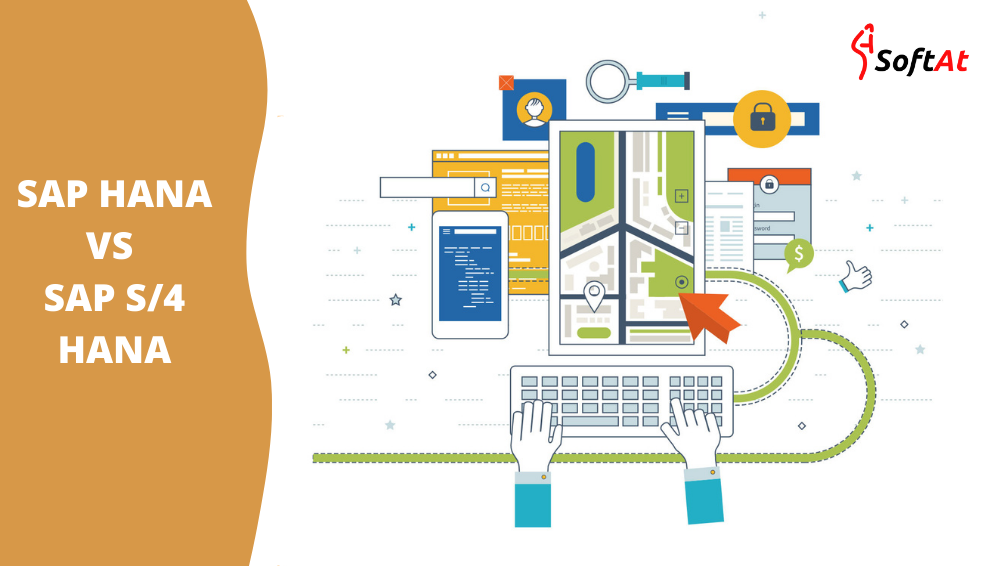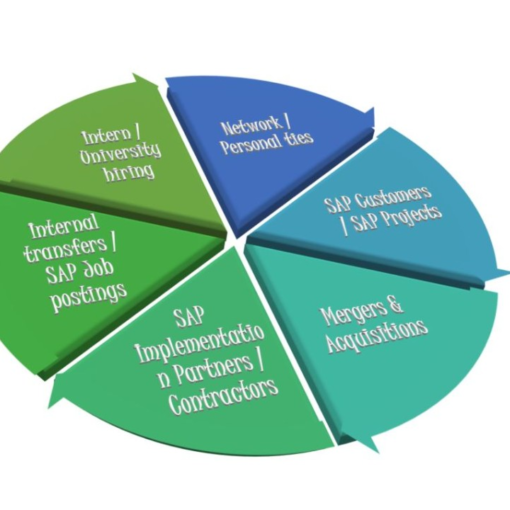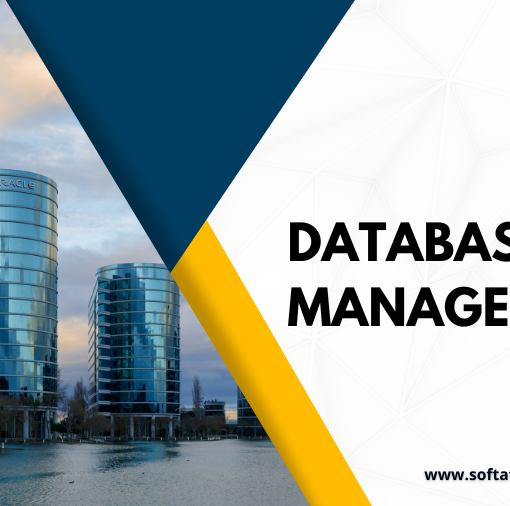
SAP HANA VS SAP S/4 HANA
What is the difference between SAP HANA and S/4 HANA?
With this SAP HANA vs SAP S/4 HANA tutorial, we are going to clarify a very popular confusion that people entering the world of SAP HANA face. Some common confusion, what is the difference between SAP HANA and SAP S/4 HANA? Is S/4 HANA, a version of SAP HANA? Are both of them, the origin of the same technology? Well, there is a lot to talk about. Enterprise Resource Planning
So, let’s start with our discussion where we will solve all your queries about SAP HANA and S/4 HANA.
SAP HANA vs SAP S/4 HANA
Before diving into the details and drawing parallels between the two SAP products, you must first understand the basics of them from the tutorial series on SAP HANA.
What is SAP HANA?
SAP HANA is an in-memory database technology that runs the SAP Landscape serving as the backend. SAP HANA is a column-oriented Relational Database Management System (RDBMS) that serves a computing platform for many SAP applications.
SAP HANA is primarily used as a core technology or database platform in systems or environments involving business operations related to sales, HR, finance, logistics, etc. Its in-memory technology, column-based storage, OLAP, and OLTP support makes data storing, retrieving, processing, and analyzing 10 times faster and more storage efficient than any other traditional RDBMS.
In addition to this, HANA uses main memory efficiently and leaves significantly less memory footprint than traditional systems. It uses compression techniques on data to reduce the space taken by data in column stores. As it stores important data in memory, real-time data analysis using SAP HANA is one of the best offers by any database technology ever.
What is SAP S/4 HANA?
Launched in February 2015, SAP S/4 HANA is SAP’s next-generation business suite designed only to run on SAP HANA. S/4 HANA stands for SAP Business Suite 4 SAP HANA. SAP S/4 HANA is the fourth business suite version coming after SAP R/3. Also, by making it solely compatible with the SAP HANA system at its backend, SAP replaces the old SAP ECC/ERP system with SAP HANA. However, S/4 HANA is based around its successor i.e. ECC (ERP Control Center) solution, and treats it as its core technology.
SAP S/4 HANA is a new Enterprise Resource Planning (ERP) solution with simplified data, a simple tool design, is agile, easier to use, performs complex calculations, and handles greater amounts of data. It can be deployed on-premise, on-cloud, or as a hybrid system.
S/4 HANA does not support batch processing for its data which makes retrieval and processing of data very fast and that too in real-time. Real-time analytics makes it possible to use S/4 HANA powered by SAP HANA to process and analyze data from the Internet of Things (IoT) or big data sources.
The Key Difference between SAP HANA & SAP S/4 HANA
To understand the basic difference between the two, read the points below.
SAP HANA is an in-memory database technology that acts as the core technology for a lot of other SAP or non-SAP applications whereas SAP S/4 HANA is a new-generation ERP solution that runs on SAP HANA database architecture.
S/4 HANA is a business suite launched as a robust ERP solution having both ERP and BI capabilities utilizing HANA’s in-memory computing power. It is an in-memory version of the ERP Business Suite as it only runs on SAP HANA.
Before SAP S/4 HANA was introduced as the new generation ERP solution, SAP ECC6, Suite on HANA, etc. were used as ERP business suite solutions.
There are two functional versions of SAP S/4 HANA; S/4 HANA Finance and S/4 HANA Enterprise Management(EM).
What is SAP ECC and HANA
SAP ECC stands for SAP ERP Central Component. It’s also known as SAP ERP. It’s one of SAP legacy applications that originally designed to operate on a third-party database such as Oracle and IBM DB2.
SAP ECC is the system that most companies have and are familiar with because it includes the more commonly used modules such as financials, human resources (HR), warehousing, and logistics. SAP ECC also has modules such as Production Planning, Materials Management, and Plant Maintenance for manufacturers.
SAP ECC is the core product within SAP Business Suite and should not be confused with SAP Business Suite. SAP Business Suite goes beyond the foundational modules and supports specialized or complex functions such as supply chain management (SCM) and customer relationship management (CRM). Similar to SAP ECC, SAP Business Suite can run on a third-party database such as MSSQL, IBM DB2, and SAP HANA.
SAP HANA is an in-memory columnar database designed to accelerate SAP apps and business processes that was released in 2010. SAP HANA is now the foundation for running SAP Business Suite products. It’s an in-memory, column-oriented database. It simplified the data structure and improved performance to increase user productivity, provide real-time visibility, and take advantage of analytics. It was created so companies can react to up-to-the-minute data instead of static quarterly reports. Enterprise Resource Planning
What is the Difference Between SAP ECC vs. SAP HANA?
SAP ECC is the ERP system and SAP HANA is the in-memory database, designed to handle transactions and analytics. HANA was originally designed to be a data warehouse, but it has grown into an all-in-one data platform that manages analytical, transactional, and application development.
SAP plans on terminating its maintenance support for SAP ECC in 2027 so SAP customers will be required to move to S/4HANA. For most companies, it’s an expensive and lengthy undertaking, often spanning years.
Summary of SAP HANA VS SAP S/4 HANA
This concludes our comparative article on SAP HANA vs SAP S/4 HANA. Frankly speaking, there is no exact comparison between the SAP HANA and SAP S/4 HANA but we can differentiate the two versions of SAP Business Suite i.e. Suite on HANA and S/4 HANA. I hope you are clear about SAP HANA vs SAP S/4 HANA with your doubts regarding this and understood the difference between the two business suites.
Enterprise Resource Planning
SAP HANA VS SAP S/4 HANA
SoftAt Services: SAP S/4 HANA





